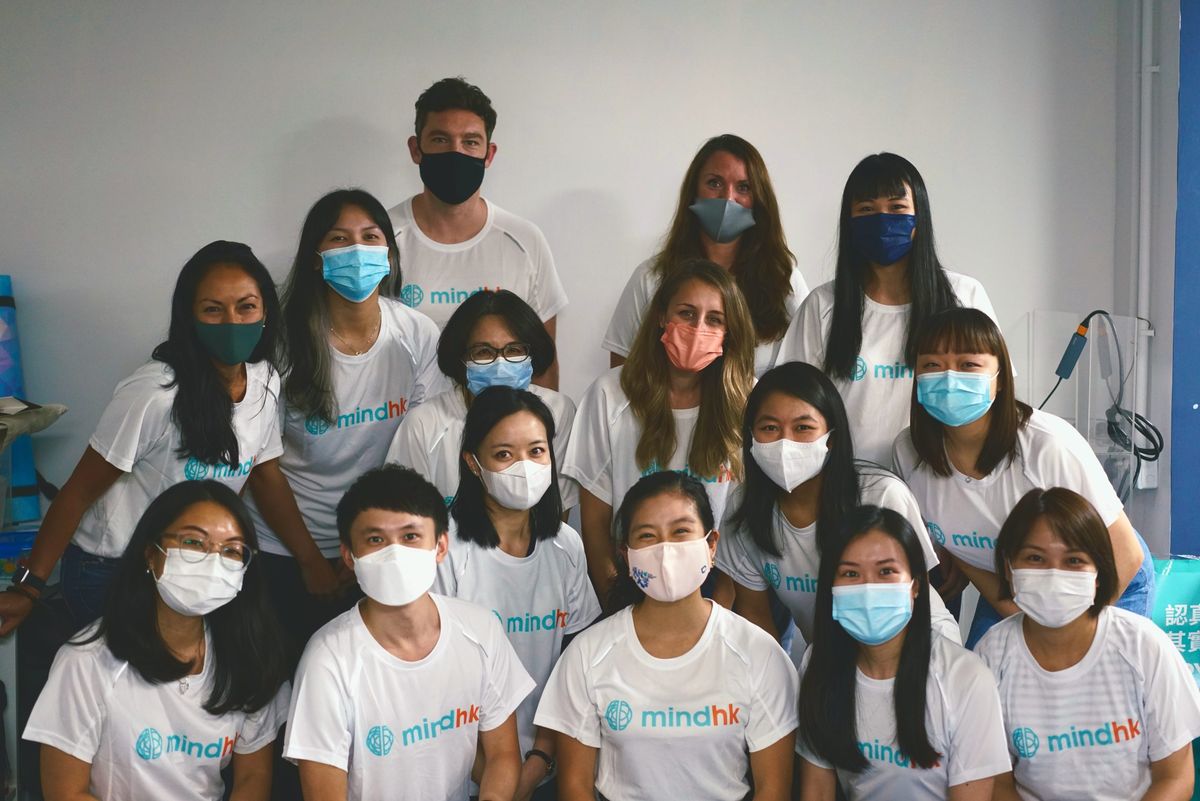Mind HK weighs in on Hong Kong’s mental health situation

A few minutes every morning is all you need.
Stay up to date on the world's Headlines and Human Stories. It's fun, it's factual, it's fluff-free.
It’s no secret that the seemingly unending pandemic is chipping away at people’s mental health. Especially in Hong Kong, strict social distancing regulations and compulsory quarantine have raised the voices of many in concern for mental health and well-being.
Currently combating these issues in Hong Kong, Mind HK is a charity that aims to raise awareness and educate people on mental health. Mind HK provides resources and services to address the need to understand and support those who are struggling with mental health, especially during these difficult times.
TMS spoke with Mind HK’s Deputy CEO Carol Liang to learn more about Hong Kong’s mental health situation and how Mind HK is helping those in need.
Mental health in Hong Kong
Even before the pandemic, mental health was a prevalent issue in Hong Kong. Despite the challenging nature of detecting psychological distress, research conducted by the government summarized an evident increase in people with mental disorders amongst the general public.
“Research shows that around one in seven in Hong Kong (pre-COVID) were facing a common mental health disorder at any given time, with depression and anxiety being the most common mental health conditions,” says Liang. This research also attributes the pandemic to having further exacerbated this problem.
Not only is mental health a widespread issue, but the stigmatization of mental health is prominent in Hong Kong, too. The stigma around mental health is due to many reasons, including low mental health literacy levels, language, culture and media portrayals of people diagnosed with mental health conditions, as Liang explains. Although mental health promotion campaigns have been implemented in Hong Kong, inaccurate media portrayals of people with mental disorders reinforce negative stereotypes, thereby pushing people away from the topic rather than facing it.
“The media is of particular concern in Hong Kong, with mental illness and the term ‘mental health’ largely often being portrayed in a negative manner, linking it directly to attributes such as violence,” Liang points out. “This reinforces false beliefs that people with mental health conditions should be feared, which has unfortunately led to the stigma and self-stigma behind mental health conditions.”
Due to this stigmatization, mental health services are often ignored or considered “taboo” to use, in fear of what others might think. Because of this, Liang emphasizes the importance of education and support regarding the topic of mental health in our society. Ultimately, everyone in society – from schools to media to workplaces – has a role in destigmatizing mental health.
“We all have mental health, [like] physical health, and more effort needs to be put into spreading this message within communities,” Liang asserts.
Mind HK’s stance on mental health
“Mind HK’s core mission is to ensure that no one in Hong Kong has to face a mental health problem alone,” says Liang.
In addressing mental health in Hong Kong, Mind HK proactively steps in. Through programs, resources and events, Mind HK raises awareness to destigmatize mental disorders and empower and actively help those struggling with mental health. To achieve this, Mind HK has partnered with various organizations and charities in hosting events, producing content and other activities.
Liang elaborates on Mind HK’s current projects. “Over the past few years we’ve collaborated with Kely Support group on a joint youth mental health initiative, Coolminds, which seeks to [improve] mental health literacy among young people in Hong Kong and the people around them. We are also working with Kely Support Group and Inspiring HK on a program to improve awareness of the importance of lifestyle and physical activity among young people in Hong Kong.”
Amid the pandemic, in hopes of reaching and supporting those who need it most, Mind HK has been focusing its attention on raising awareness and informing people about the value and how to take care of mental health during these times.
“With the uncertainty of the virus and the many fears around it, it is normal for people to be facing a range of emotions, be it sadness, loneliness, anger or guilt,” says Liang. “We’ve been focusing our attention on creating a new COVID-19 information hub, events and workshops to inform individuals how to manage these and support each other, COVID-19 positive or negative.”
What to do if you’re feeling blue
So, if you’re feeling blue at home and don’t know what to do, Liang suggests some tips we can follow to help ourselves out. For those who are struggling mentally, you can learn more about potential reasons as to what’s happening and why through Mind HK’s resources. Facing your symptoms head on can help you better understand your situation and work your way through it calmly. You can also seek professional help – Mind HK provides a list of available mental health services (pro bono or low-cost) in its community directory.
However, if you feel that you are in a crisis or having suicidal feelings, Liang urges you to seek emergency help.
Some other tips Liang offers for those who are in isolation or forced to stay home are to “maintain a good routine, e.g. change into your regular clothes in the morning, carve out time for breaks and set daily goals.”
Liang says, “Keep moving! If you are COVID-19 negative and in quarantine, movement can be incredibly helpful for your mental well-being. There are many apps and YouTube videos which you are able to follow. Take care of yourself by putting self-care front and center. Prioritize sleep, stay connected with loved ones and do things you enjoy and make you feel less stressed.”
The future of Hong Kong’s mental healthcare is still uncertain with COVID lingering, with the virus being both unprecedented and unpredictable. However, Liang expects for a promising future of transitioning to telehealth sessions and extensive use of technology to aid mental health services in the future. Also, a silver lining from thepandemic is that more attention has been drawn to the topic of mental health, which helps destigmatize this issue.
“I also see more workplaces paying more attention to mental health support and programs for their staff, which has been promising,” says Liang. “The one silver lining of the COVID-19 pandemic is that people are talking more about mental health and the importance of it; we are all facing a common problem, which has removed a barrier for discussion.”
Have a tip or story? Get in touch with our reporters at tips@themilsource.com




Comments ()